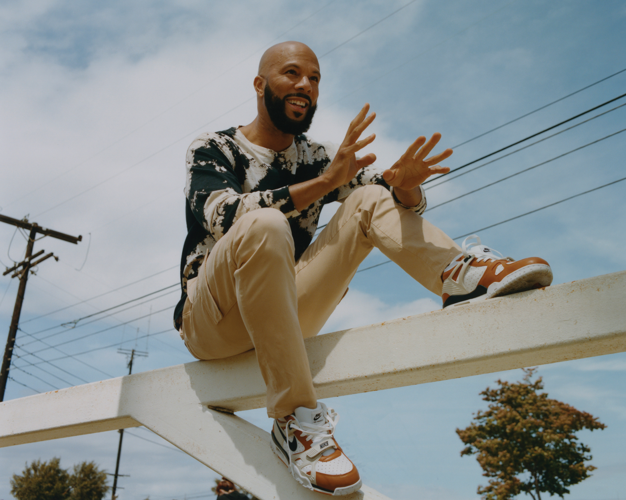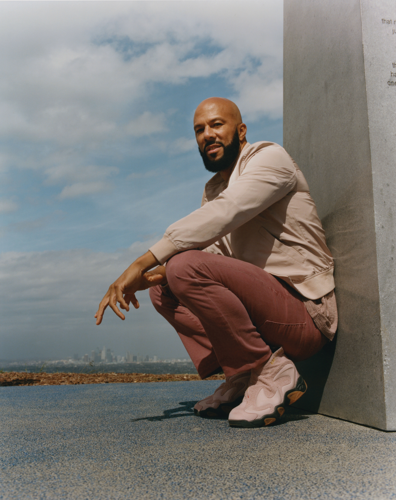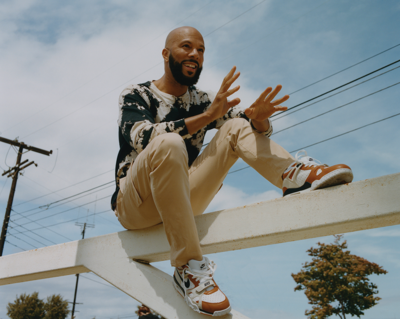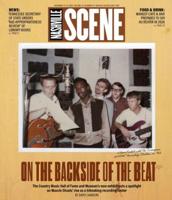
If there’s any MC who is guaranteed a spot on the Mount Rushmore of “conscious rap,” it’s gotta be Common. With nimble lyricism, songs that address topics from the personal to the political and a bevy of soulful samples driving his catalog, the Chicago rapper is synonymous with this subgenre of hip-hop. At its best, conscious rap is credited for rising above the materialistic and chauvinistic trappings of mainstream artists — and at its worst, it’s dismissed as being corny and paternalistic.
But describing Common as just a conscious rapper fails to capture a diverse career: There’s the braggadocious b-boy from 1992’s Can I Borrow a Dollar, the battle rapper who clashed with Ice Cube in 1996, and the experimental artist who tried (and didn’t quite succeed in) channeling Jimi Hendrix on 2002’s Electric Circus. Even setting aside those releases, Common has also dropped at least three classic albums, meaning his status as a rap legend is secure.
Resurrection, from 1994, was a golden-era masterpiece produced by No I.D., the Chicago beatsmith who more recently crafted the soundscape for Jay-Z’s mature and reflective 2017 album 4:44. On Resurrection’s standout track “I Used to Love H.E.R.” hip-hop is personified as a former lover. Common documents the culture’s growth and evolution in the mid-’90s, referencing trends like Afrocentricity, gangsta rap and growing commercial appeal. In 2000, Common dropped the political and introspective Like Water for Chocolate, which cemented his conscious-rap reputation and featured one of rap’s finest love songs, “The Light.”
In 2005, Common released the Kanye West-produced Be, perhaps his magnum opus (as well as a top-tier West production), which features one of the best opening tracks in rap history. “Be (Intro)” features a triumphant beat that rides a jazzy bass line, playful synth keys and a soaring horns-and-strings sample, while Common spits soulful bars that pay tribute to late icons like Malcom X and John Coltrane. The rapper finds inspiration in their legacies and hopes that his daughter’s generation will lead the way to brighter days.
But even the flops deserve credit. Electric Circus was ahead of its time, playing with rock, jazz and light psychedelia. The album is one of Common’s more divisive, with some fans heralding its imagination and ambitions, and others just finding it wack. Common’s more traditional flow was perhaps a mismatch for the wilder beats featured on the LP, and while some of the instrumentals aged well, many of the hooks did not. It’s also hard to ignore the fact that André 3000 would pursue similar ambitions one year later on the The Love Below — one-half of Outkast’s 2004 Grammy-winning double album, along with Big Boi’s SpeakerBoxxx. But even if the execution was off, Common’s forward-thinking project still deserves its props.
Universal Mind Control was also divisive, and despite a Grammy nod, the 2008 release may not have the same level of love as Electric Circus. As a new generation of radio-friendly electronic music began taking over airwaves, Common cut an album incorporating elements of techno into a collection of mostly shallow songs. Despite a slate of beats from forward-thinking producers The Neptunes, the album mostly showed that vapid dance music is better left to the Pitbulls and Flo Ridas of the world.
Common stepped back into his lane with far greater success in this decade. Nobody’s Smiling from 2014 was a bleak response to violence in Chicago, its black-and-white cover art a reflection of the somber themes of the album. The next project, 2016’s Black America Again, addressed the landscape of the U.S. during a hectic election year and also drew inspiration from the Black Lives Matter movement that emerged during the Obama administration. The Stevie Wonder-assisted title track, as Common noted in a commentary CD, was inspired by Trayvon Martin, Sandra Bland and other black people whose deaths highlighted the country’s rampant inequality and injustice.
Common has a new album coming out Aug. 30 called Let Love, landing just a week after his stop at the Ryman on Thursday. Lead single “HER Love,” featuring Daniel Caesar and Dwele, revisits the personification of hip-hop in “I Used to Love H.E.R.” over a smooth beat from the late J Dilla. The track culminates in a clever third verse that incorporates the names of younger rappers like YG, Kendrick Lamar and Cardi B, embracing how the genre has changed and how it still offers life-changing opportunities. As Common raps, continuing the shout-outs: “In Young Thugs, you see a Future / You recognize Lil Uzi ain’t here to shoot ya / At 21, you knew I was Savage / But you said, ‘Common, you will never be average.’ ”
The follow-up single “Hercules,” which features Swizz Beatz, mixes battle raps with a choppy flow but still hints at a struggle against oppression. The song, with its dark, driving beat, seems like an extension of the previous two albums’ world-weary outlook.
As he gets ready to take his career into a fourth decade, Common has proven himself as a rapper who always has something to say — across four different presidencies and an ever-shifting rap landscape. Common’s hometown remains a wellspring of talent, and while he’s a vital part of the tradition that produced current stars like Chance the Rapper and Vic Mensa, the veteran MC isn’t about to let the new kids have all the fun.







